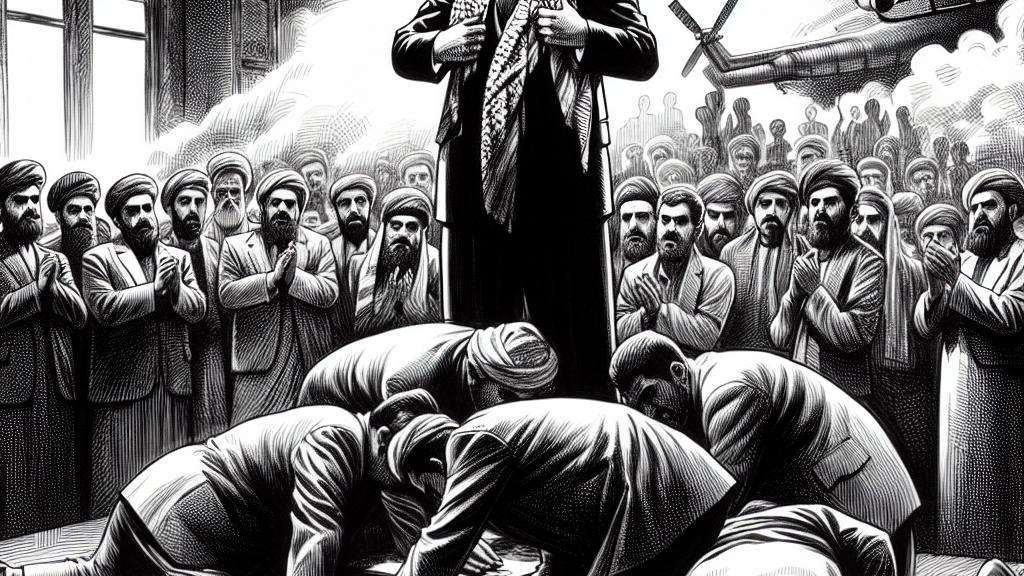Hassan Nasrallah's Assassination: Implications for Hezbollah and Resistance
Overview
- On September 28, 2024, Hassan Nasrallah, the pivotal leader of Hezbollah, was killed in an Israeli airstrike in Beirut, marking a significant turning point.
- Hamas and Iranian officials proclaim that this assassination will amplify the resistance against Israel, unifying their factions with renewed fervor.
- Hezbollah's vow to continue its fight in light of Nasrallah's death suggests potential escalation in an already complex conflict landscape.

The Killing of Hassan Nasrallah
On that fateful day, September 28, 2024, Hassan Nasrallah, who had been at the helm of Hezbollah for decades, was killed in a precise Israeli airstrike in Beirut. This dramatic event did not occur in a vacuum; rather, it surfaced amid rising tensions following Hamas's aggressive actions that began on October 7. Nasrallah’s leadership had transformed Hezbollah into a major player in the region. He was not just a militant leader but a figure of resilience, rallying his supporters through turbulent times. Under his guidance, Hezbollah successfully engaged in various confrontations with Israel, notably during the intense 2006 war that solidified his image as a defender against Israeli incursions. His assassination, therefore, sends shockwaves through the organization and the wider Axis of Resistance, reeling from the loss of a powerful symbol.
Responses from Hamas and Iran
In stark contrast to the sorrow of losing such a pivotal leader, responses from Hamas and Iranian officials were imbued with determination and defiance. Hamas quickly proclaimed that Nasrallah's assassination would only serve to fortify their collective resolve, thereby enhancing their fight against Israel. They emphasized that his legacy of resistance would ignite a new, vigorous phase of their struggle. Iranian leaders, too, echoed this sentiment. Foreign Ministry spokesman Nasser Kanani stated boldly, 'The glorious path toward liberation will continue unabated.' This solidarity emphasizes their collective commitment to resistance. For instance, in the past, such declarations have often preceded coordinated military strategies, indicating that Hezbollah and Hamas might soon launch joint operations against Israeli forces. The rhetoric alone suggests that the repercussions of Nasrallah’s death may prompt a more aggressive posture against Israel.
Implications for Hezbollah and Future Conflicts
Hezbollah now stands at a crucial crossroads, facing the immense pressure of proving its tenacity and strength following Nasrallah's untimely death. The group is aware that maintaining internal cohesion and morale among its ranks is vital during this turbulent period. As they deal with grief, they must also address external pressures threatening to fracture their unity. Analysts widely predict that retaliatory measures could come swiftly, such as increased rocket attacks along the Israeli border or mobilization of fighters to reinforce positions. This echoes past responses, like the 2006 Lebanon War, where swift retaliation defined Hezbollah's military strategy. Moreover, potential escalations might not only affect Israel but could ignite further regional tensions, drawing in allies and adversaries alike. For Hezbollah, navigating this moment requires both tactical skill and strategic foresight, as the consequences of their next steps will undoubtedly shape the future of the conflict and their place within it.

Loading...